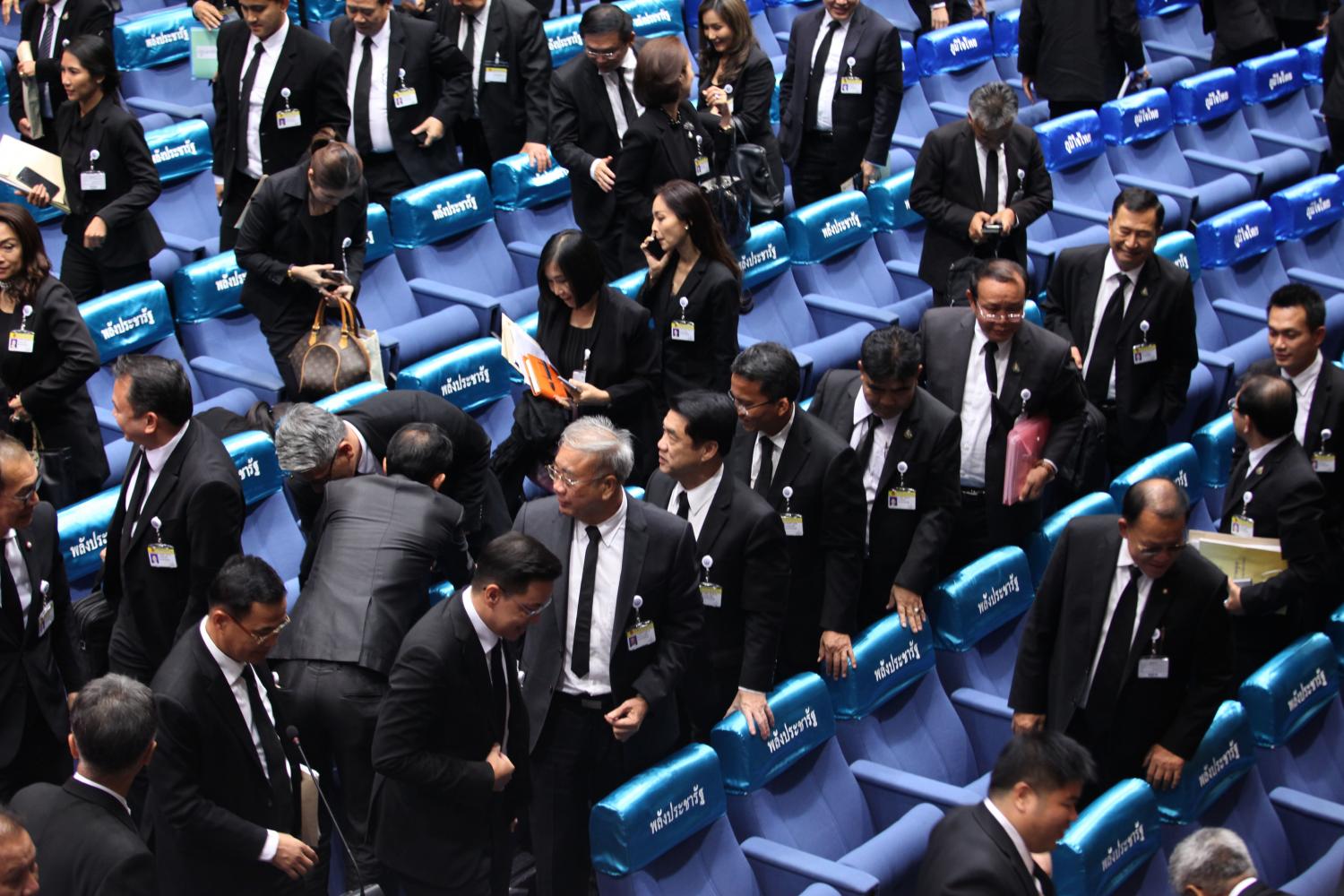
As anti-monarchy accusations fly and self-serving coalition politics becomes the name of the game, Thai politics has arrived at another critical junction.
Prime Minister Gen Prayut Chan-o-cha has secured his second term, with the possibility of an even longer haul since the appointed Senate has a five-year tenure.
Yet, the virtually hung parliament, internal strife within the eclectic coalition, extreme polarisation and a sharp rise in twisted rhetoric bode ill for the overall ideas of stability, democracy and sense of justice.
Anyone for "democratic dictatorship?" It's clearly confusing where we are and what we are doing.
The return of coalition politics defined more by self-interest than political ideology is inevitable. It's in the design of the current constitution aimed at breaking the monopoly of power of strong political parties.
The voracious fighting for cabinet jobs is an outlier, however. The military regime may have overestimated its hand in controlling career politicians, not just those from other parties but veterans even within its Palang Pracharath Party (PPRP) political vehicle.
The unashamed wranglings put all the coalition parties, including the PPRP which formerly claimed to have the moral high ground, in the same pool of dirty politics. It's exactly this kind of politics that everyone agrees we should move away from. Yet, here we are witnessing a tedious blast from the past being played out as reform.
The rise of extremist politics and the anti-monarchy witch-hunt, especially targeting rookie MPs from the Future Forward Party (FFP), are other risk factors.
The FFP is by all means a disruptor. The one-year-old party defied expectation as it surged to become the country's third-largest political party with some 80 MPs. It's no surprise that the party and its leaders are being watched with suspicion by the establishment.
It's still dangerous to let the anti-monarchy game go on. History has taught us that bringing the high institution into politics can easily lead to an uncontrollable situation.
Since the March election, we have seen old ideas and presumptions crumble. Political groups that used to stand apart are coming together as politics shifts toward pragmatism.
The old dividing line of ammart (aristocrat) versus phrai (ordinary people) has faded into the background as military dictatorship versus liberalism, the overall generation gap and self-interest became the real issues.
For many, ideologies no longer matter, or they do in such a diluted form that we have seen people who touted an anti-corruption agenda condoning nepotistic practices themselves. Anything goes as long as the support base is pleased.
People who once claimed to fight for egalitarianism are now cosying up to dictators. We have seen parliament, which should serve as the venue for intellectual and constructive arguments, being reduced to tirades about the appropriateness of the women's dress code. We have seen the regime, which has always acted as if it were above politicians, wheeling and dealing in just the same way.
What ideals or noble values can anybody hold on to when actual politics harks back to what was condemned as a rotten coalition game of power? It's ironic that after the protracted conflict, street protests and calls for political reforms we have come back to the same stumbling block we wanted so badly to change in the first place.
People condemned Yingluck Shinawatra for the flawed rice-pledging policy but are indifferent to PM Gen Prayut Chan-o-cha invoking Section 44 to relieve digital TV operators of billions of baht debt owed to the National Broadcasting and Telecommunications Commission in unpaid licence fees.
Those who once condemned as an act of parliamentary dictatorship the Pheu Thai Party's sneak issuance of a law to pardon politically motivated court cases don't see anything wrong with the 250 senators who were handpicked by the regime unanimously voting its chief to be the new PM.
Supporters of political groups from different spectra say we should respect differences of opinion but social media is awash with politically related bias, even hate speech.
Should we feel proud that we have tried so hard to do away with fractious politics just to end up with an even more backward game marked by sexist comments such as one by MP Mongkolkit Suksintaranont, leader of the Thai Civilised Party, who said he would like to see women MPs cat-fighting in the parliament because it would be fun?
The dilution of ideology provides cause for discouragement. The people are feeling disillusioned. There will likely soon be mounting calls for change. That could be a positive thing amid the decay except for the atmosphere of extremism and anti-monarchy witch-hunting, which are not at all conducive to any realignment.
Atiya Achakulwisut is a columnist, Bangkok Post.
